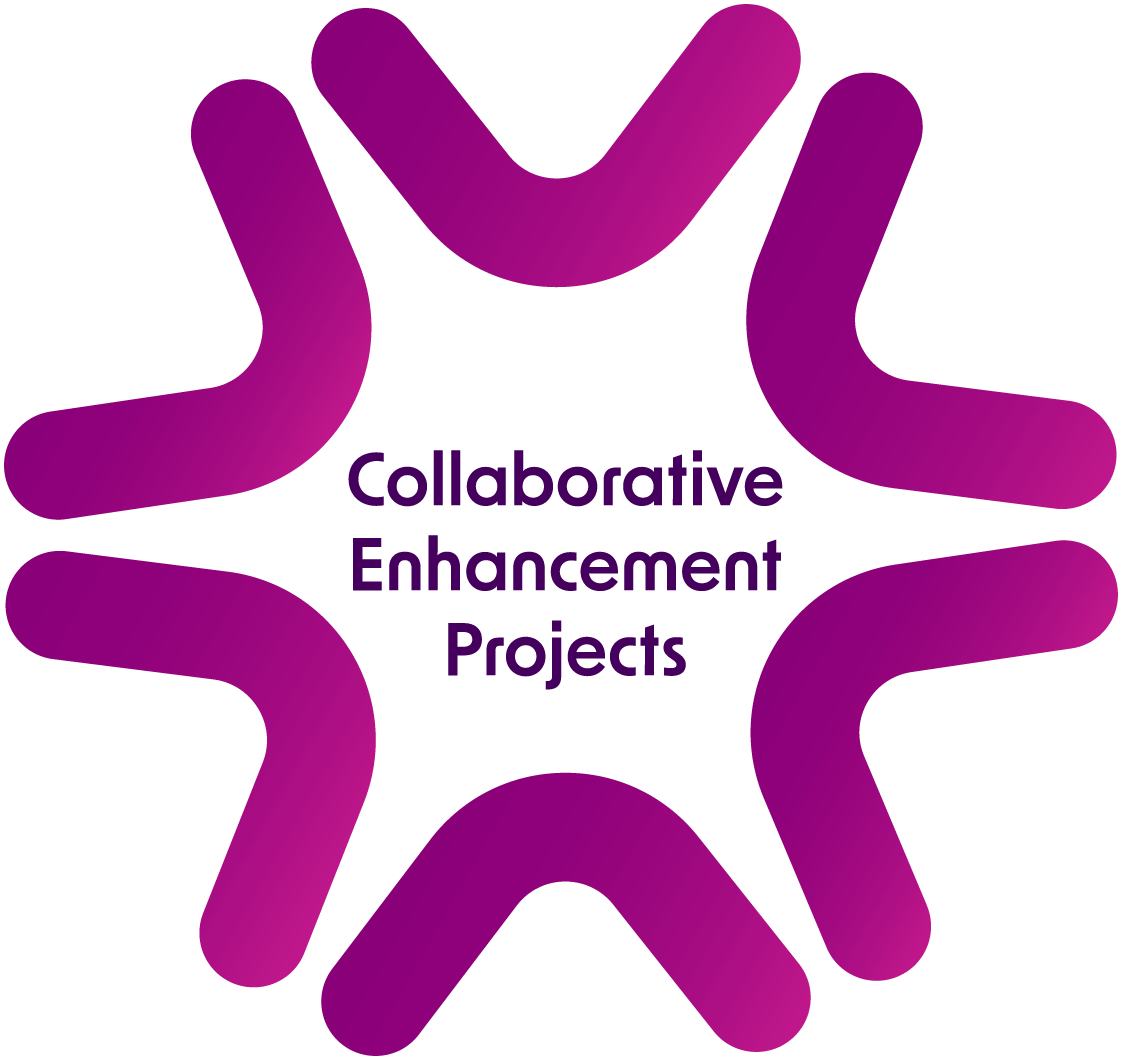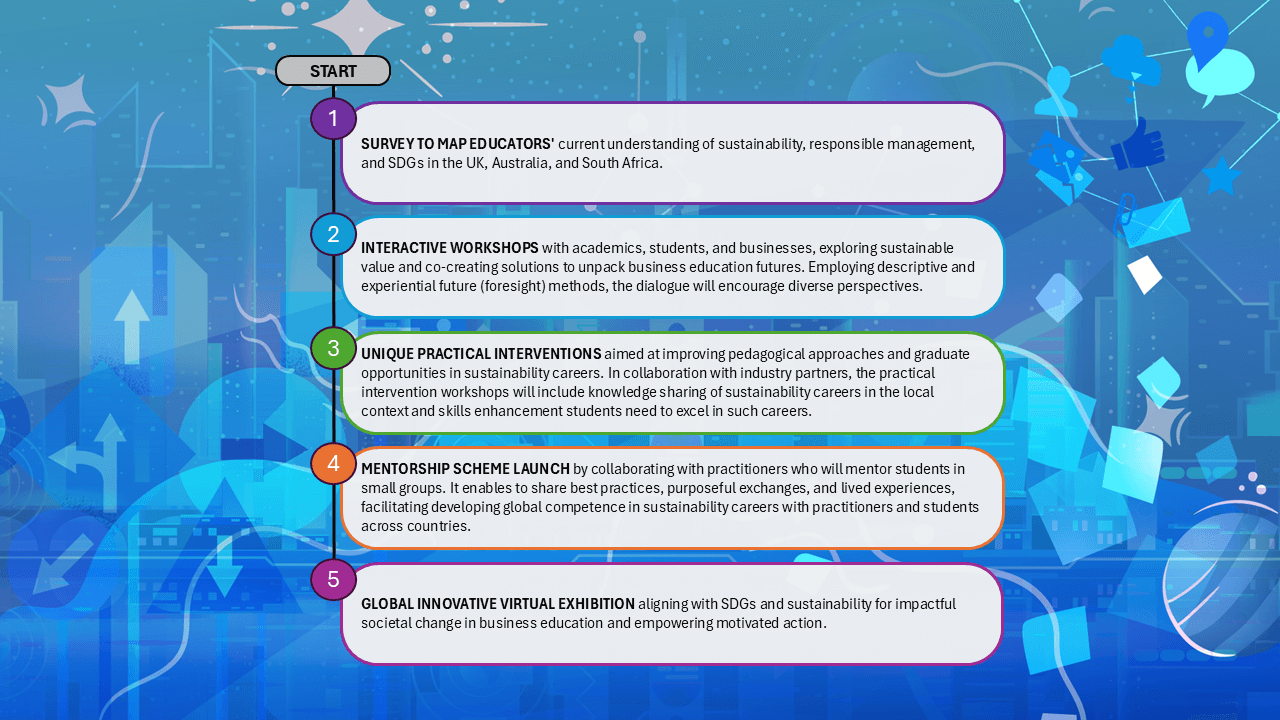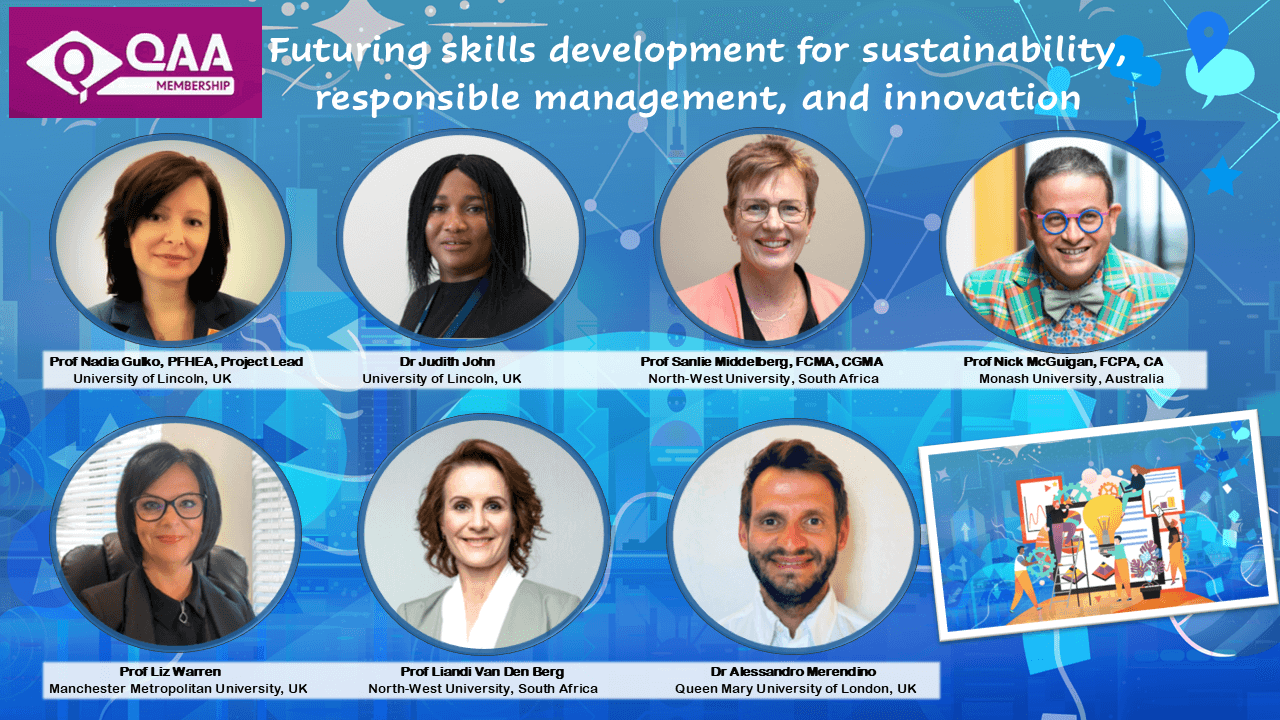
This Collaborative Enhancement Project explores sustainability in education through a multi-disciplinary, cross-cultural collaboration spanning the UK, Australia, and South Africa. This pioneering initiative goes beyond traditional classroom teaching, collaborating with educators, students, and industry partners, to deliver an innovative global virtual exhibition.
About this project
In response to the primary sub-theme ‘Imaginative Approaches to Employability, Experiential Learning, and Learning by Doing’, our multidisciplinary cross-cultural collaborative research project between the UK, Australia, and South Africa, elevates educators' engagement with sustainability and responsible management in education and their roles in students’ skills development.
Fostering a unique space for interdisciplinary collaboration, the project unfolds via surveys, workshops, practical interventions, mentorship schemes and an innovative exhibition that serves as an experiential learning experience, allowing students to showcase and reflect on their developed competencies and enabling educators to engage in an interactive way with a deeper understanding of student perspectives on learning, education, and future employment.
By uncovering lived experiences, elevating diverse perspectives, and fostering action-oriented learning, this initiative aims to equip graduates with the adaptability and skills needed to navigate an evolving global workforce.
Futuring skills for sustainability, responsible management and innovation
We are excited to be part of this CEP project as it provides a unique opportunity to collaborate, share best practices, and develop innovative solutions that enhance education. Working with others allows us to address common challenges and ensure our thought leadership remain relevant and impactful. It is a privilege to work with such a dynamic, multidisciplinary, and cross-cultural team to shape the future of learning and skills development in collaboration with the QAA membership. Our emphasis on “futuring” skills through sustainability and interdisciplinary learning will bring fresh perspectives to the QAA portfolio of CEP projects.
Collaborating with other higher education institutions brings diverse perspectives, shared expertise, and access to new resources. Each partner contributes unique strengths—whether in research, teaching, or industry links—helping us together create high-quality, innovative ideas. This collaboration fosters continuous improvement and ensures the best outcomes for sharing practice. This collaboration not only enriches our own teaching and research but also allows us to integrate global best practices into the classroom, ultimately enhancing student learning and engagement. By working across institutions and cultures, we can develop more holistic, forward-thinking educational strategies that align with the evolving needs of students and industry.
The QAA membership provides a fantastic support for innovative educators and researchers by supporting collaborative projects such as ours enabling to bring together futures thinking, innovation in education, research, industry, and sustainable development. Our project’s “creatively futuring” approach offers a fresh perspective on employability, responsible management, and sustainability, aligning with the QAA’s mission for skill-rich, lifelong learning. The work will help build a repository of best practices that supports lifelong, flexible learning, enhancing quality standards across QAA member institutions.
Stages of the Project

The project team of our QAA Collaborative Enhancement project was brought together from six institutions from across three countries: Australia (Monash University), South Africa (North-West University), and the UK (Manchester Metropolitan University, Queen Mary University of London, Regent's University London, and the University of Lincoln).
Lead institution
Professor Nadia Gulko, University of Lincoln, UK (PI)
Dr Judith John, University of Lincoln, UK (Co-I)
Partner institutions
Professor Liz Warren, Manchester Metropolitan University, UK (Co-I)
Dr Alessandro Merendino, Queen Mary University of London, UK (Co-I)
Professor Nick McGuigan, Monash University, Australia (Co-I)
Professor Sanlie Middelberg, North-West University, South Africa (Co-I)
Professor Liandi Van Den Berg, North-West University, South Africa (Co-I)
